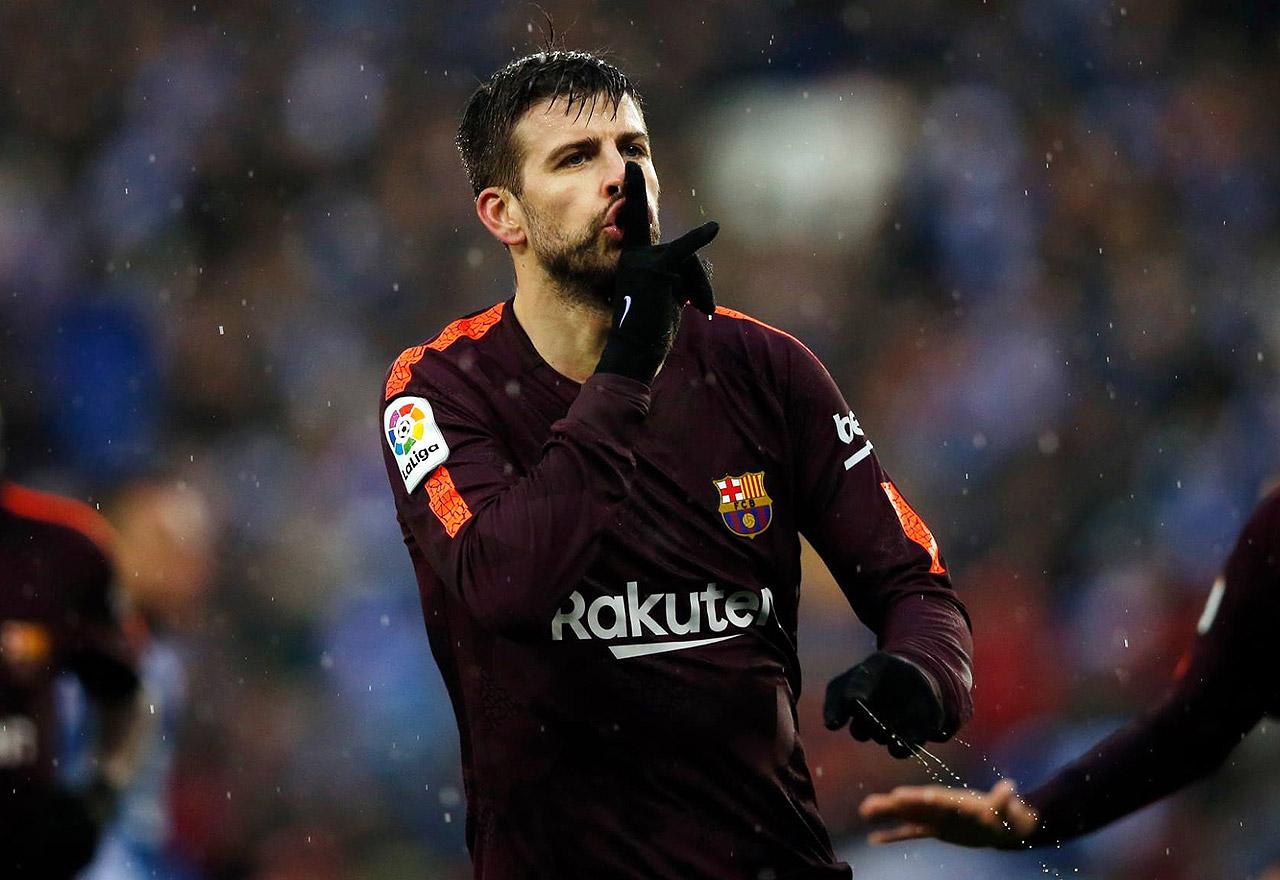Until you experience things, you never quite believe what they are going to be like. Imagination is a wonderful thing, and we as human beings would be lost without it. But imagining what something is going to be like is never the same as being there in the flesh. The Catalan derby, between Espanyol and Barcelona, is indeed one of those said experiences. On Sunday, I went to the newly named RCDE stadium to witness one of Europe’s fiercest rivalries; with the context of Catalan nationalism and independence firmly rooted in the region, this only made the match more flavoursome. Added to this was also the fact that the two sides had recently met each-other in the quarter-finals of the Copa Del Rey, with Barcelona narrowly winning 2-1 over the two legs in encounters that were filled with controversy.
Gerard Pique, amid some of his recent comments, added even more, if it were possible, spark to the flames. Getting booed every time he touched the ball on Sunday afternoon, the home fans made no secret of their hatred towards him, using certain phrases to display their strong dislike of him – phrases I wouldn’t dare write/translate here. It was indeed to be a tasty affair.
Historically, Catalan independence is not a new phenomenon; from 19th century revolts, 20th century political parties and anger at Franco’s fascist dictatorship (including his banning of teaching Catalan in school), did much to damage relations between Madrid and Barcelona. Catalans, throughout history (though by no means the majority) have always felt different from the rest of Spain. Much of the discourse around Catalan independence is similar to the Scottish version, though, naturally, with many differences, as the distinctive traditions, histories and experiences of the UK and Spain show. However, with the recent events since the summer, the referendum in October and regional elections in December, this match was always going to be more than a simple game of football: it had political undertones to it.
Traditionally, Espanyol has been more likely to have anti-Catalan independence fans, whereas Barcelona is home to the independentistas. This is, of course, generalising. Many Barcelona fans are anti-independence and many Espanyol fans are not unionists. Families and friends have been split down the middle on this controversial topic. Roughly speaking, similar to Scottish independence, the peoples in Cataluña are divided by a 50/50 split. There were, though, Spanish flags aplenty in the stadium, with many Espanyol fans demonstrating their clear belief that Cataluña should remain in Spain.
The game itself was much what you expect from a derby match: fouls, yellow cards, controversial refereeing decisions, crunching tackles, passionate footballers. Ironically, after all the booing and his comments, Pique was the Barcelona goalscorer, provoking more anger to the home fans after his celebration. This was, as they say, always going to happen. The fact that it finished 1-1 did not seem to matter. Barcelona have almost won the league, and didn’t lose to their rivals. That’s all that seemed to matter to Ernesto Valverde, ahead of Barcelona’s crucial cup semi-final vs Valencia followed by the Champions League double-header against a struggling Chelsea. The derby, in this sense, has always mattered more to Espanyol, given their lack of success compared to the dominance that Barcelona have achieved in the world of football.
What will happen in the future for Cataluña, nobody knows. Nobody knows what will happen tomorrow, let alone the long-term future of this rich, beautiful region. What is sure is that Espanyol vs Barcelona will always be a symbol of the rivalries between the independentistas y unionistas. Football transcends politics, but it also helps to shape political debate. It can be a vehicle of not only social change, but also protests. Whilst the Catalan question is up for debate – and it shows no signs of abating – this derby will play a pivotal role in the emotional political discourse. Therefore it is much more than a football match.
By James Felton

